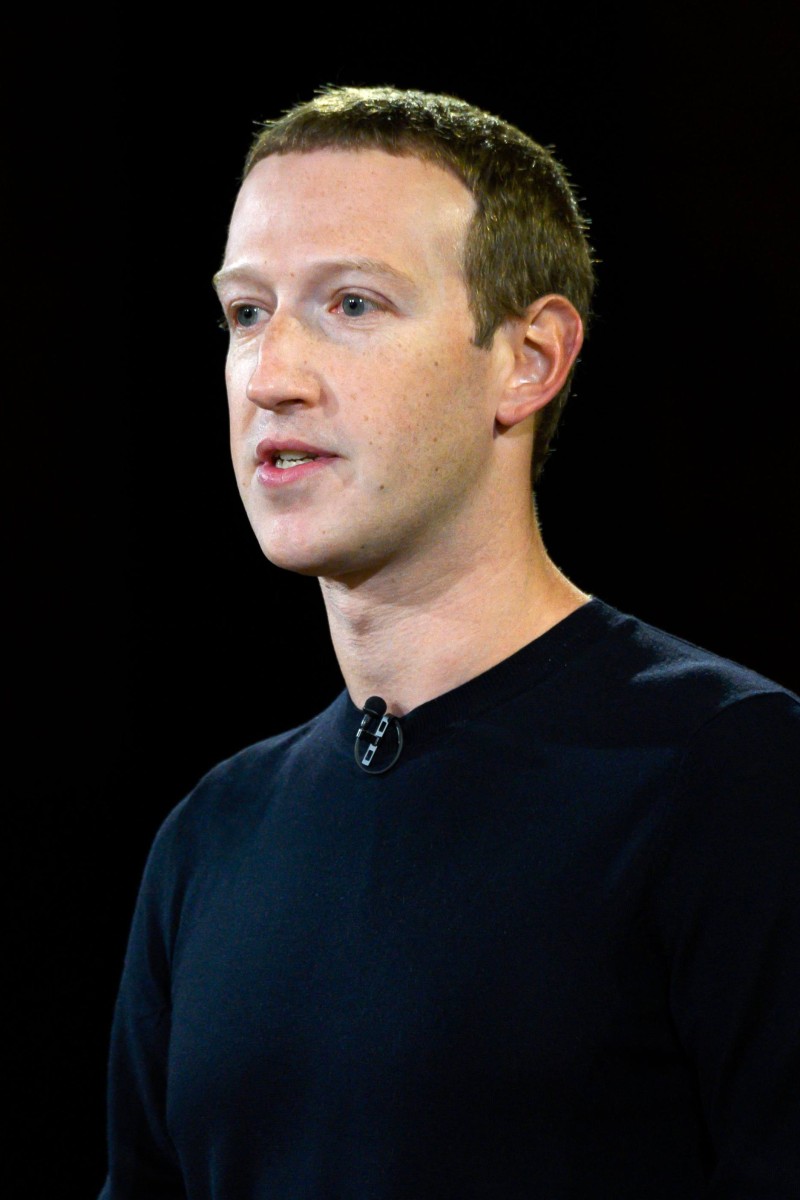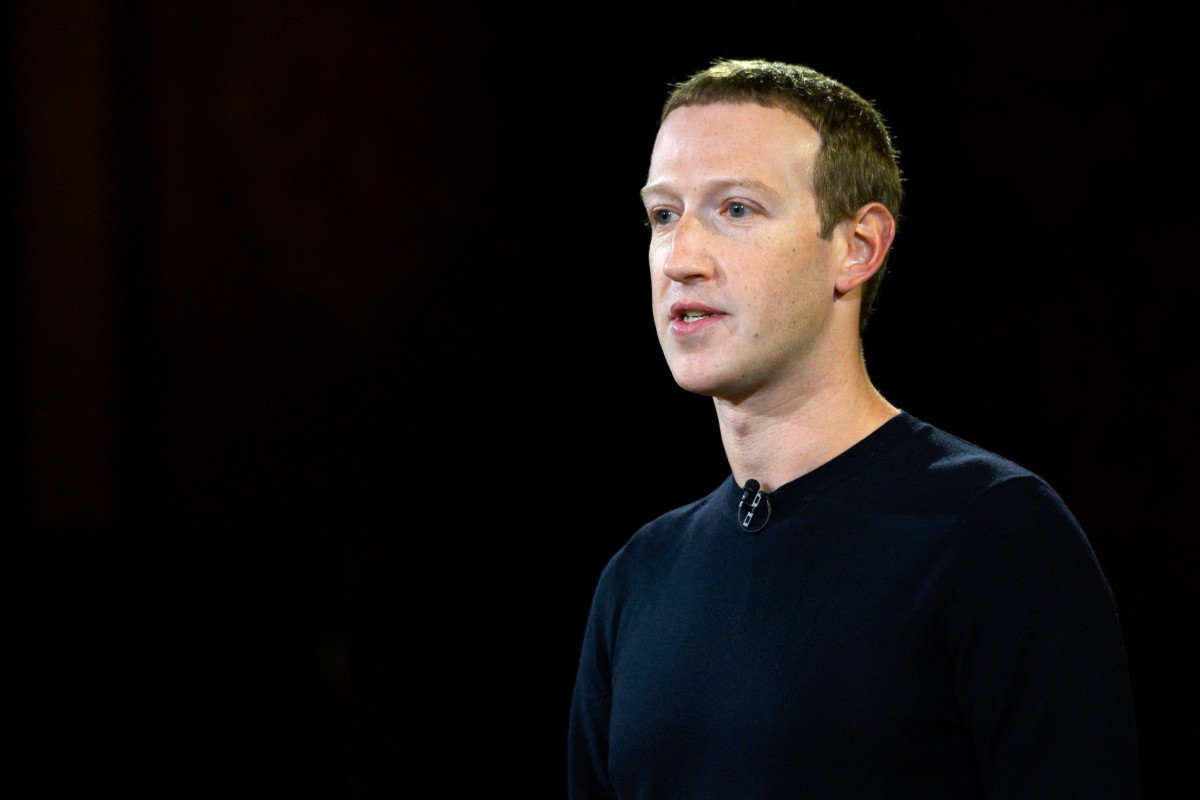
Facebook whistle-blower tells US Congress that the social media giant harms children and needs regulation
- Ex-employee Frances Haugen, who leaked the company’s internal studies of its negative impact on mental health to the media, spoke to lawmakers on Tuesday
- CEO Mark Zuckerberg denied her claims that the company ‘prioritises profit over safety’
 Facebook CEO Mark Zuckerberg hit back at claims from whistleblower Frances Haugen that the social media giant fuels division, harms children and needs to be regulated, saying the claim the company puts profits over safety is “just not true.” Photo: AFP
Facebook CEO Mark Zuckerberg hit back at claims from whistleblower Frances Haugen that the social media giant fuels division, harms children and needs to be regulated, saying the claim the company puts profits over safety is “just not true.” Photo: AFPA whistle-blower told US lawmakers on Tuesday that Facebook fuels division, harms children and urgently needs to be regulated, drawing pledges from Congress that it would take up long-delayed action.
The testimony by ex-employee Frances Haugen has fuelled one of Facebook’s most serious crises yet, and prompted a denial from CEO Mark Zuckerberg, who said in a post on his account that her claim the company prioritises profit over safety was “just not true.”
Haugen testified on Capitol Hill after she leaked reams of internal research to authorities and The Wall Street Journal.
The best #InternetShutDown memes
“I believe that Facebook’s products harm children, stoke division and weaken our democracy,” Haugen told a Senate panel.
“Congressional action is needed. They will not solve this crisis without your help,” she added.
In her testimony, she emphasised the power held by a service that is tightly woven into the daily lives of billions of users.
She also noted the risks that the social media giant’s platforms are fuelling a wave of eating disorders, body-shaming and self-dissatisfaction that is particularly dangerous for young people.
“There are going to be women walking around this planet in 60 years with brittle bones because of the choices that Facebook made around emphasising profit today,” she said, referring to the impact of eating disorders.
Zuckerberg denied all the claims in a note to Facebook employees that he posted on his account, calling the argument that the company pushes content that makes people angry for profit “deeply illogical.”
YouTube cracks down on anti-vaccine misinformation
“We make money from ads, and advertisers consistently tell us they do not want their ads next to harmful or angry content. And I don’t know any tech company that sets out to build products that make people angry or depressed. The moral, business and product incentives all point in the opposite direction,” he said.
Of all the claims, he said he was “particularly focused” on the ones about Facebook and children, adding that he was “proud” of the work the company has done to help young people in distress.
And he reiterated his own calls, which date back years, for the industry regulations to be updated, repeating Facebook’s stance Congress was the “right body” to do that.
After Haugen’s testimony, some members of Congress agreed.
“Here’s my message for Mark Zuckerberg. Your time of invading our privacy, promoting toxic content and preying on children and teens is over,” said Senator Ed Markey.
“Congress will be taking action ... we will not allow your company to harm our children, our families and our democracy any more,” he added.
The struggle to contain misinformation on social media
Senator Amy Klobuchar said she sees the whistle-blower disclosures as the long-needed push to get Congress moving.
“I think the time has come for action, and I think you are the catalyst for that action,” she told Haugen.
US lawmakers for years have threatened to regulate social media platforms to address criticisms that the tech giants trample on privacy, provide a megaphone for dangerous misinformation and damage young people’s well-being.
Instagram for Kids plan put on hold
Facebook has pushed back hard against the Journal stories backed by the internal studies that Haugen leaked, and even before Zuckerberg’s post the company fiercely objected to her testimony.
A Facebook statement called her “a former product manager who worked at the company for less than two years, had no direct reports, and never attended a decision-point meeting with C-level executives.”
“We do not agree with her characterisation of the many issues she testified about,” said a statement from Lena Pietsch, Facebook’s director of policy communications.
Haugen, a 37-year-old data scientist from the US state of Iowa who has worked for companies including Google and Pinterest, delivered hours of testimony that showed a developed understanding of Facebook’s mentality.
“A lot of the changes I’m talking about are not going to make Facebook an unprofitable company,” she said. “It just will not be a ludicrously profitable company like it is today.”
She returned repeatedly to the idea that Facebook is a platform where human behaviour was being manipulated to keep people on the app and engaged.
There’s a lot of weird food trends on TikTok - which ones are healthy?
Haugen noted that she believed Facebook was not bad on its own, but that it needed intervention to guide it away from a place that breeds toxicity.
Experts were uncertain that the revelations from Haugen’s testimony would serve to end years of arguments between Republicans and Democrats on the matter.
“It’s possible, but far from assured, that today’s hearing will mark a real inflection point,” said Paul Barrett, deputy director of New York University’s Stern Centre for Business and Human Rights.
Haugen spoke less than a day after Facebook, its photo-sharing app Instagram and messaging service WhatsApp went offline for around six hours, hitting potentially billions of users and highlighting global dependence on its services.